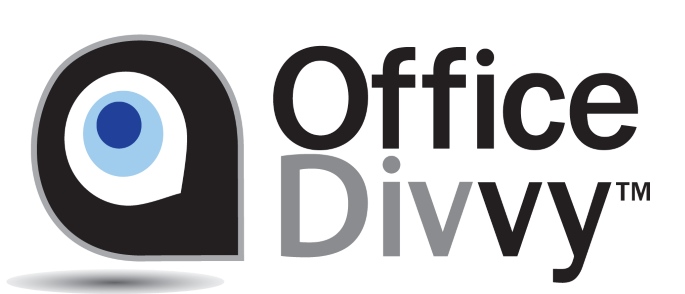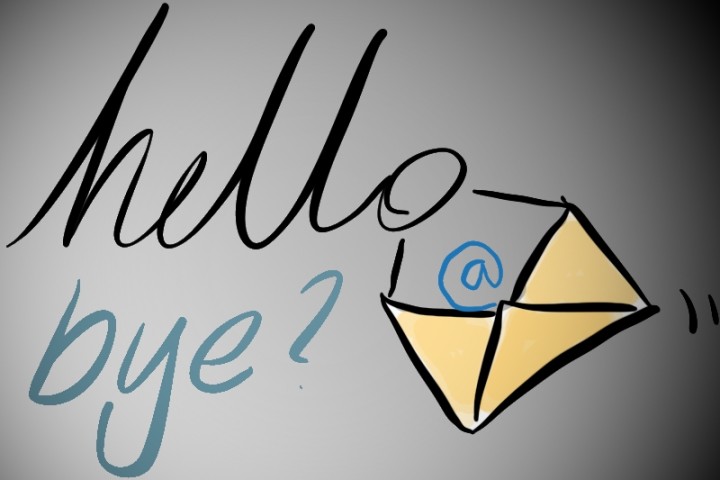Is email still going away?
Roll back a few years….
June 15, 2010. At Neilsen’s Consumer 360 Conference, Facebook’s then new, and relatively unknown Chief Operating Officer, Sheryl Sandberg delivers the keynote speech and says “email is going away.”
Based on facebook’s data, Ms. Sandberg says only 11% of teenagers today send and receive email daily, and that the notion “I can’t imagine life without email” is going away:
Right away Huffington Post ran a survey based on this speech by Sheryl Sandberg.
 Most participants of that survey did not agree that the email was going away anytime soon.
Most participants of that survey did not agree that the email was going away anytime soon.
In fact the 2010 Keynote Speech by Sheryl Sandberg really was nothing but a reveal of what was to come: Facebook’s desire to replace email with facebook’s own messaging platform.
Facebook users were given their own @facebook.com email addresses based on their usernames. In June 2012, Facebook made its play and emphasized @facebook.com email addresses on user profiles and hid users’ other email addresses. The hope was facebook users would start using facebook to communicate with the outside-facebook world, using their @facebook.com addresses, right within facebook.
In early 2014 however, after two years of trying to get adoption from users for its combined email/messaging platform, Facebook announced that it was retiring its email service and notified users that all email sent to their @facebook.com address will soon be forwarded to their primary email address on file. Facebook users can turn off the forwarding feature, which is on by default. Users without a primary email address on Facebook won’t receive forwarded messages.
 A facebook spokesperson even confirmed that “Most people have not been using their @facebook.com email address.” So the desire of facebook to replace email has effectively ended.
A facebook spokesperson even confirmed that “Most people have not been using their @facebook.com email address.” So the desire of facebook to replace email has effectively ended.
Surely, facebook’s intentions may have not been pure with the desire to replace email with their own solution –as it was a self serving one.
Email was a terrific solution for the digital-era.
Email still solves a problem today, however it creates other problems while solving one problem. And that is not good for business.
So, the need to find solutions to the many shortcomings of email is a real need.
Many of us struggle with endless email every day. In fact, I had a blog post on that previously, and you can read that here: Mail Never Stops.
Reading and responding to email creates interruption in our days. The day becomes about the email activity rather than progress, about working on what’s important.
How do You manage your email?
Do you have any practical advice (or predictions on the future of the email as we know it)?

- On Great Resignation, Upskilling, Reskilling, Student Debt, and Formal Education - March 12, 2022
- Hybrid work, you are not behind. You may even be ahead. - December 29, 2021
- 10 Things Any Small Business Owner Can Draw from Harry Potter - July 11, 2021




I think that email is still a very viable form of communication and even a necessity for some people. Even in school, teachers send assignments and files through email. Most, if not all, online accounts require you to have an email to sign up. Email has definitely become an integral part of the web.
I believe that email is only “alive” in certain ways. Email is used in business as a quick and professional way to contact people, send and share files, as well as a way to assign tasks; it is also used to sign up for several different services and programs. Since technology is constantly evolving, there is no safe way to tell whether email will die later in the future or stay in the running with new cutting-edge technology; but one thing is for sure, that by using it for business – as I stated before – it won’t be leaving anytime soon. As far as typical communication between friends and family are concerned, email has been left in the dust. Instant messaging has taken over, and people are texting or using social media more than they are emailing each other about movie plans, or how their day was.
I am someone who cannot go a day without emailing. Every other hour or so I am constantly checking my email for updates, news, and communications from other senders. In the business world I think emailing is a very important way of communicating to your coworkers and colleagues. Although my peers around me don’t seem to be utilizing their emails as much, just for school-based purposes. Instant messaging, direct messages, and texting is true to be faster and sometimes more efficient for quick conversations; emailing however is a safer and savvier way of communicating professionally and getting your ideas across. I do not doubt that technology and our way of communicating will become more advanced in the future and maybe, just maybe, we will not have to use emails any longer.
As far as I know, email is required for registration on many websites, and most people commonly use email professionally far more than socially. I personally use email to stay connected with various clubs and organizations and school purposes, but rarely for personal communication with others. Because of this, I believe that in the future, email will be replaced by text messaging and the use of cell phone numbers as verification on websites. Sadly, the use of email, similar to the receding value of instant messaging and other once essential services, will eventually become less important to daily life in the business and social world.
I think that email is here to stay, if not for social communication, it will be for business purposes. It is too valuable for organization. Also it is required in schools, on websites, and in workplaces. It could be replaced but what it will be replaced with would need to be almost the same thing.
“The quality of your life equals the quality of your communications.”
Email puts a lot of static on life’s frequency; information overload.
Outside of the need for space in a communique, I rarely use it. However, email is good for exchanging detailed information. My closest contacts know to call, or text, to let me know to look for something they have sent; otherwise I rarely check my inbox, unless I’m expecting mail. I don’t think email will go away completely. It will simply take its place among the dozens of other forms of connection available to us.